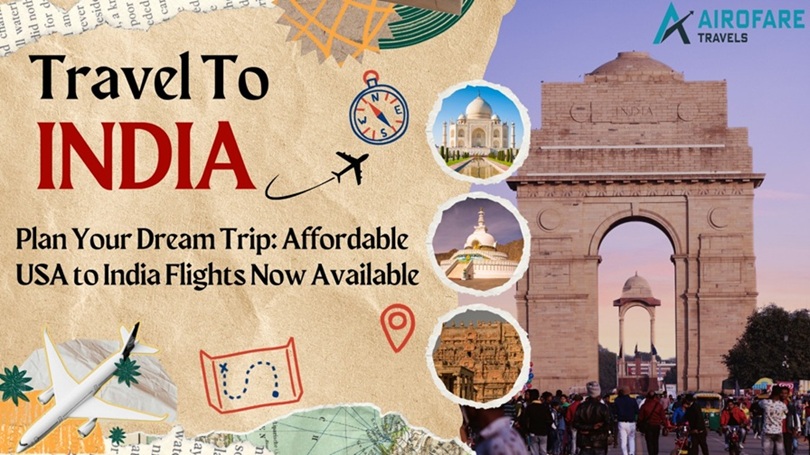
Lakshadweep, nestled in the Indian Ocean, is a mesmerizing archipelago comprising coral islands and pristine beaches. Its breathtaking beauty and rich marine life have made it a coveted tourist destination in India.
This cluster of islands is known for its turquoise waters, vibrant coral reefs, and diverse marine species, making it an idyllic spot for snorkeling, diving, and leisurely beach getaways.
In recent years, the Indian government has recognized the immense tourism potential of Lakshadweep and has been actively working towards its development to attract both domestic and international travelers.
Why Is Lakshadweep’s Tourism Developing?
- Natural Splendor:
Lakshadweep’s allure lies in its unspoiled natural beauty. The islands boast crystal-clear waters, lush greenery, and a rich ecosystem that captivates visitors. The focus on preserving this pristine environment while enhancing tourist experiences has been a key aspect of the developmental plans.
- Tourism Infrastructure:
The Modi government has been investing in developing essential infrastructure on these islands. Efforts have been made to improve connectivity, build accommodations, and enhance facilities to ensure a comfortable and enjoyable stay for tourists.
- Cultural Enrichment:
Beyond its natural beauty, Lakshadweep possesses a rich cultural heritage. Efforts are underway to promote local arts, crafts, and traditions, offering tourists a chance to immerse themselves in the vibrant culture of the islands. Cultural events, folk performances, and heritage sites are being highlighted to provide a holistic experience.
- Sustainable Tourism Practices:
Recognizing the fragility of the island ecosystem, sustainable tourism practices are being prioritized. Measures like waste management, renewable energy adoption, and responsible tourism guidelines are being implemented to ensure that tourism growth doesn’t compromise the ecological balance of Lakshadweep.
- Adventure Tourism Opportunities:
Lakshadweep’s geography offers a range of adventure sports and activities. From water sports like kayaking, paddleboarding, and jet skiing to trekking through lush forests and exploring hidden caves, there’s a diverse array of activities being promoted to cater to adventure enthusiasts.
- Infrastructure Enhancement for Accessibility:
Improving accessibility to and within Lakshadweep is a priority. Upgrading airports, enhancing sea transport, and developing internal transportation networks ensure seamless travel experiences for visitors, encouraging more footfall to the islands.
How Is Modi’s Visit To Lakshadweep A Blessing?
Modi’s visit to Lakshadweep holds immense potential and can be seen as a blessing for multiple reasons:
- Boosting Tourism Confidence:
Modi’s visit can instill confidence and trust among tourists. The presence of a prominent national leader in the region can serve as a testament to the safety and appeal of Lakshadweep as a tourist destination, encouraging more visitors to explore its beauty.
- Elevating Visibility:
The visit can bring significant media coverage and attention to Lakshadweep. This heightened visibility can attract not only tourists but also investors and businesses, potentially leading to infrastructural developments and economic growth for the region.
- Policy Focus and Development:
Modi’s visit often correlates with discussions on policy frameworks and developmental plans. It can be an opportunity for the government to address regional issues, understand the needs of the locals, and strategize on sustainable development, thereby ensuring holistic growth for Lakshadweep.
- Bilateral Relations and Collaborations:
Such visits often involve discussions with local authorities and leaders. This presents an opportunity to strengthen bilateral relations, fostering collaborations that could aid in the development of tourism infrastructure, cultural exchanges, and economic partnerships, benefiting both the mainland and Lakshadweep.
- Inspiring Community Engagement:
Modi’s presence can ignite a sense of enthusiasm and pride among the locals. It could stimulate community engagement, inspiring people to actively participate in the preservation of their culture and environment while also contributing to the growth of the tourism sector.
What Made Modi Decide To Choose Lakshadweep To Over Maldives?
Prime Minister Modi’s choice to prioritize visiting Lakshadweep over the Maldives could be influenced by various factors:
- Domestic Development Agenda:
Modi’s visit to Lakshadweep might align with the government’s focus on domestic development. Lakshadweep, as an integral part of India, could have been selected to showcase the government’s commitment to the holistic growth of all regions within the country.
- Tourism Potential:
Lakshadweep’s untapped tourism potential might have been a significant factor. The government’s interest in promoting domestic tourism and boosting local economies could have driven the decision to emphasize the development of this scenic archipelago.
- Strategic Importance:
While both Lakshadweep and the Maldives hold strategic importance in the Indian Ocean, prioritizing Lakshadweep at that moment might have been part of a larger regional strategy or a deliberate effort to address immediate regional concerns or opportunities.
- Developmental Priorities:
The government’s ongoing projects or schemes aimed at the development of Lakshadweep might have necessitated direct attention from the Prime Minister to oversee or initiate specific developmental initiatives in the region.
The decision to prioritize Lakshadweep over the Maldives could be a result of a combination of these factors.
Cancellation Of Modi’s Maldives Visit: Its Impact
The cancellation of Prime Minister Modi’s visit to the Maldives held significant implications, especially concerning bilateral relations and regional cooperation, impacting both countries in various ways:
- Diplomatic Setback:
The cancellation could have strained diplomatic relations between India and the Maldives. High-level visits are pivotal for nurturing bilateral ties, and the sudden cancellation might have led to a temporary strain, affecting ongoing dialogues and future collaborations.
- Missed Opportunities for Collaboration:
Prime Minister Modi’s visit could have been a platform to discuss crucial matters, including economic partnerships, security cooperation, and developmental initiatives, which might have included discussions on joint tourism efforts involving Lakshadweep and the Maldives.
- Impact on Tourism Agenda:
Given the focus on developing tourism in both regions, the canceled visit might have hindered the progression of joint initiatives. Collaboration on tourism promotion, exchange of best practices, and mutual strategies for sustainable tourism growth could have been explored.
- Economic Ramifications:
Bilateral visits often pave the way for economic collaborations and investments. The cancellation might have momentarily halted potential investment talks and slowed down discussions on economic partnerships that could have positively impacted both nations’ economies.
Despite the setback caused by the cancellation, both India and the Maldives have historically shared strong ties, and efforts would likely have been made to mitigate the effects.











